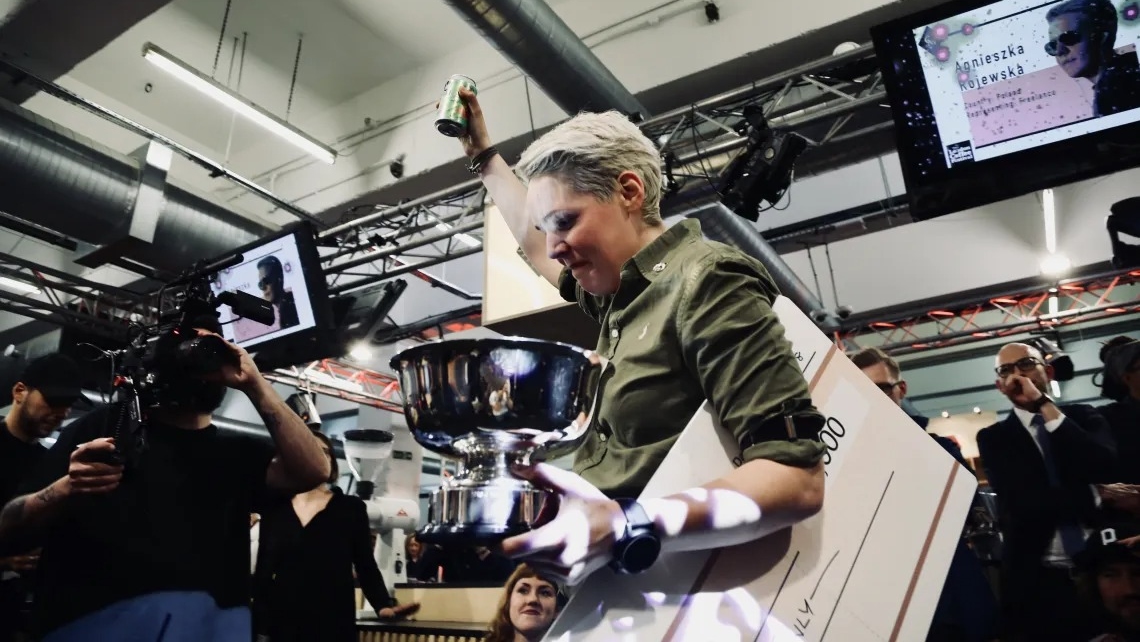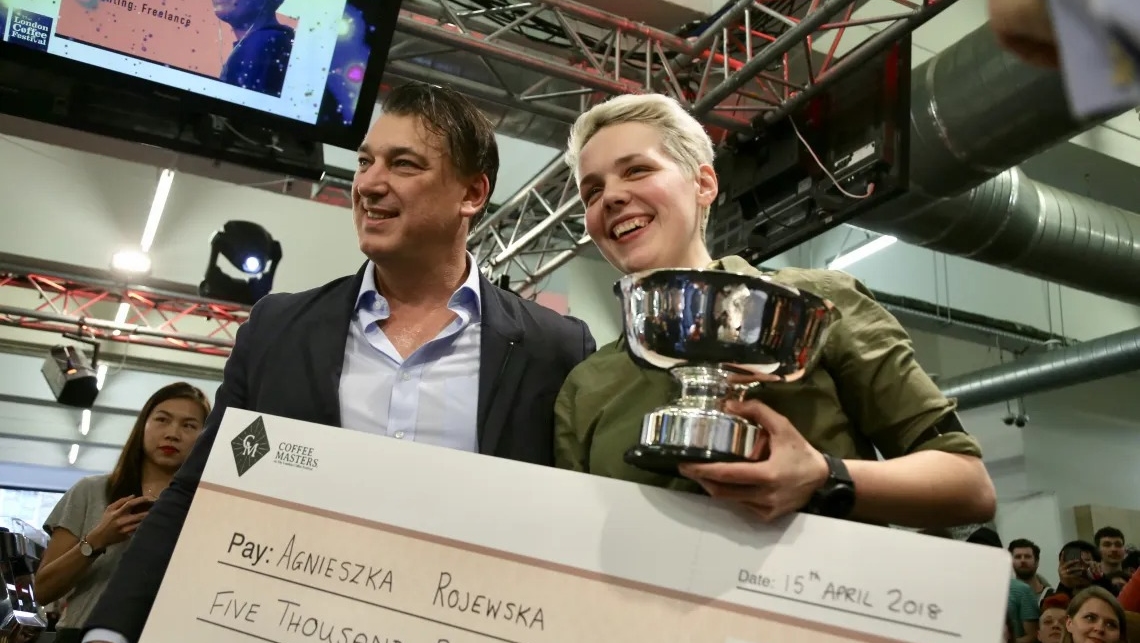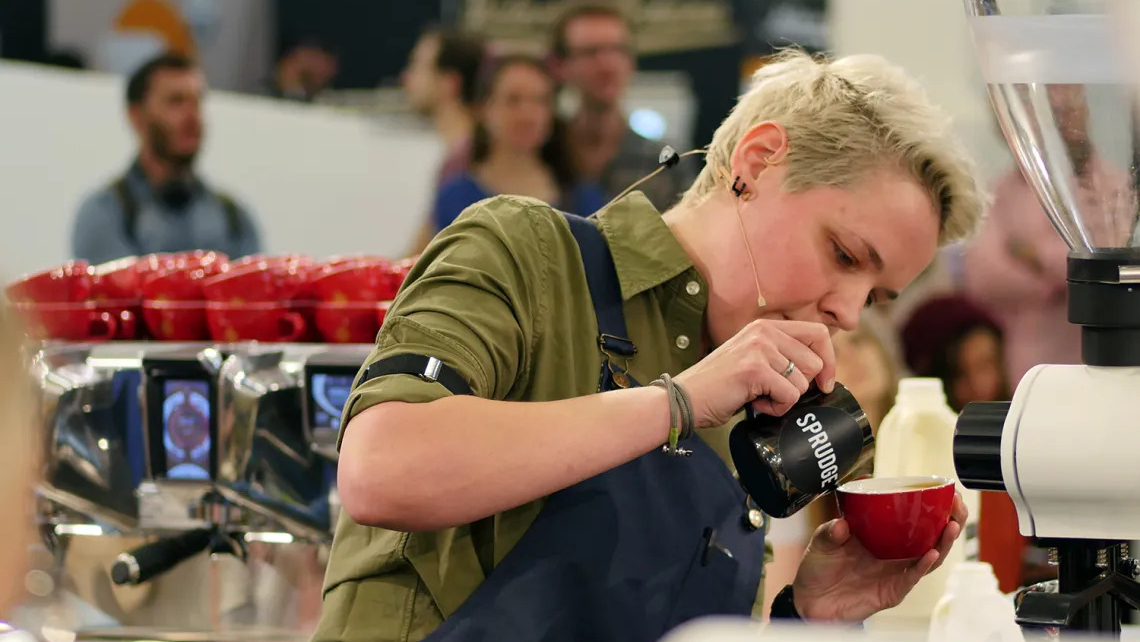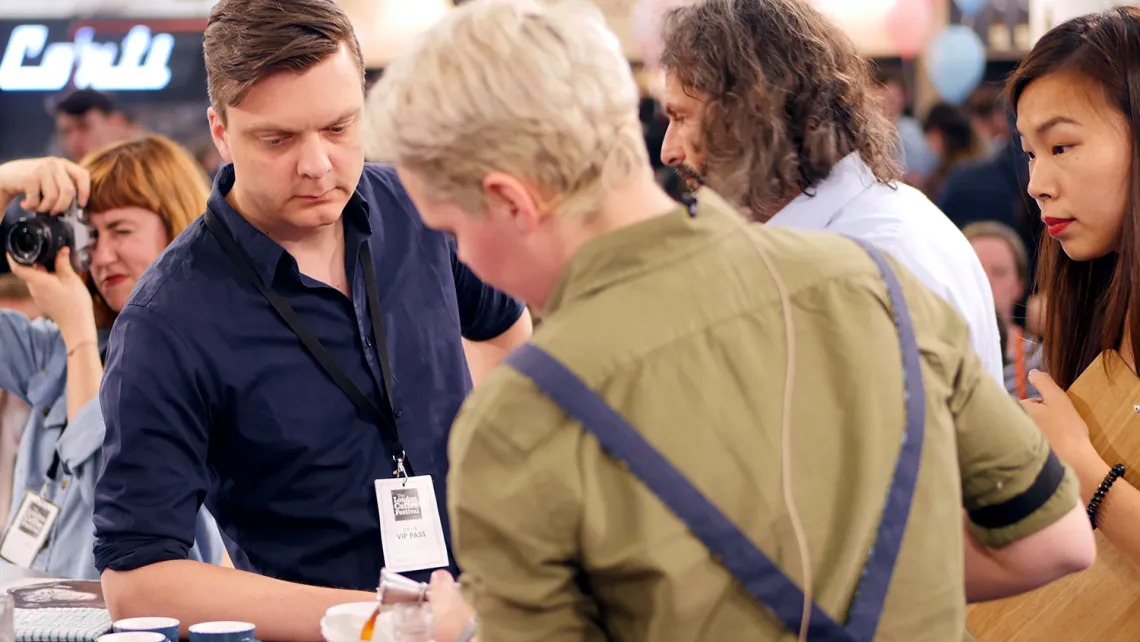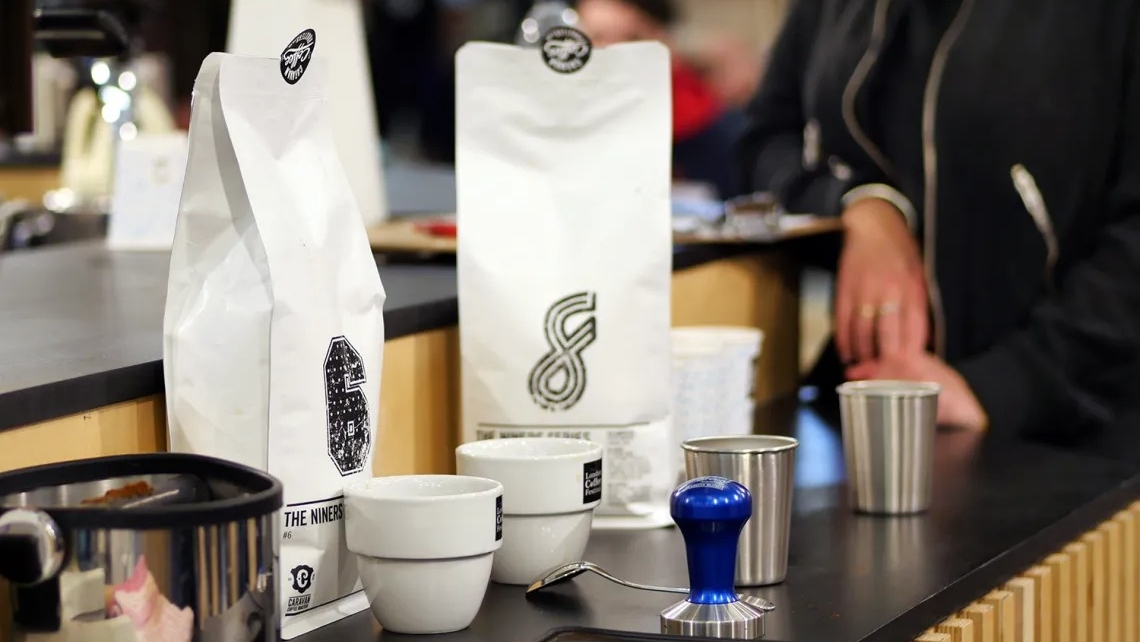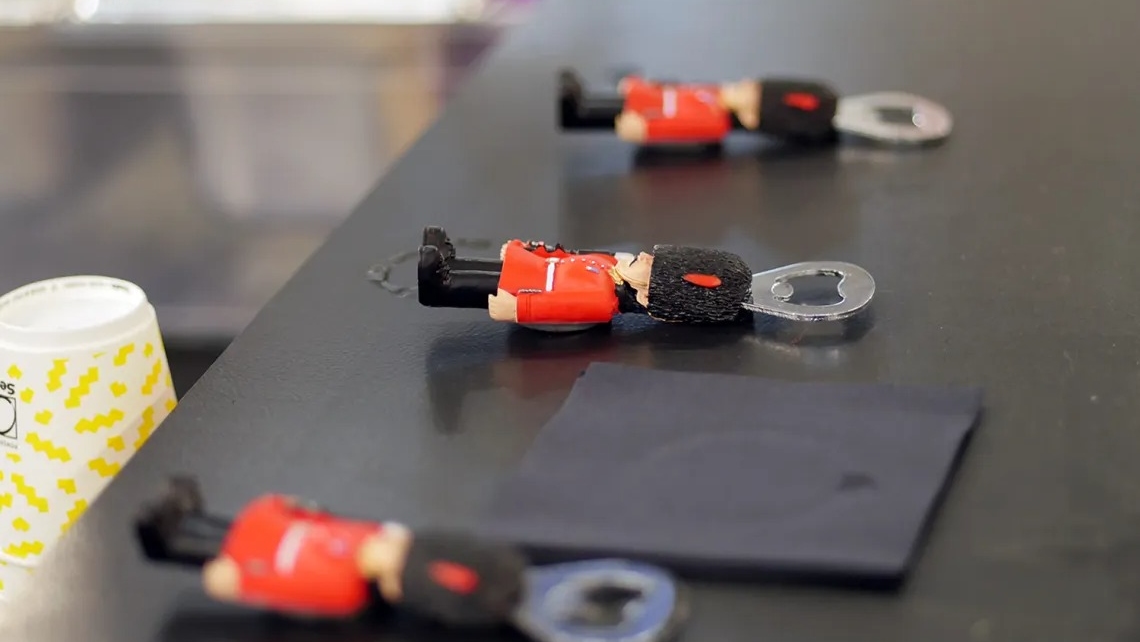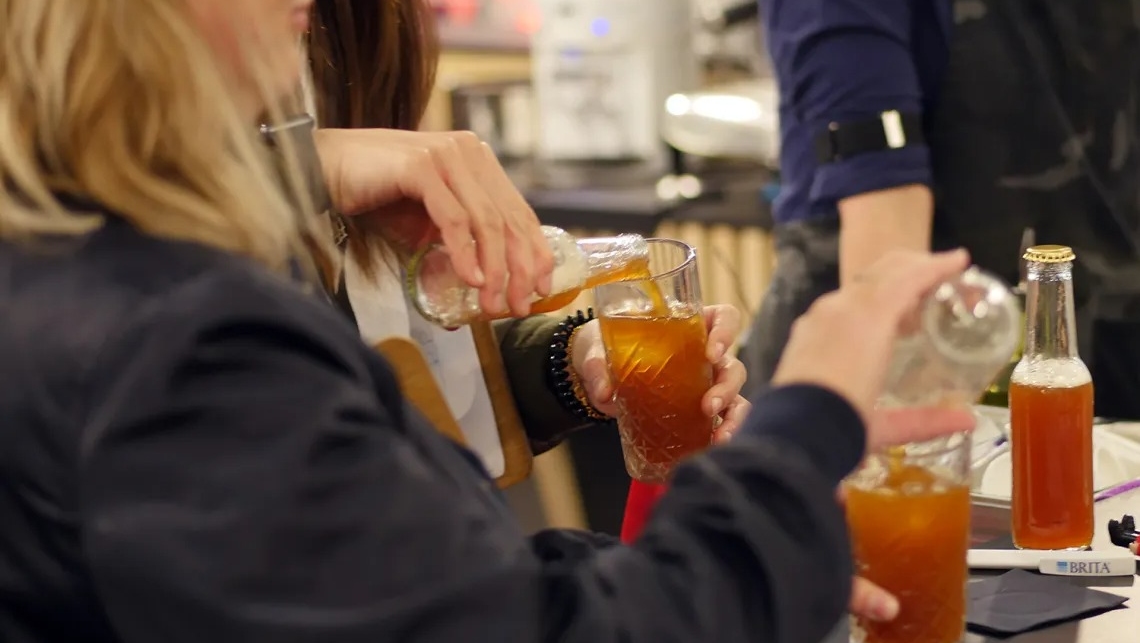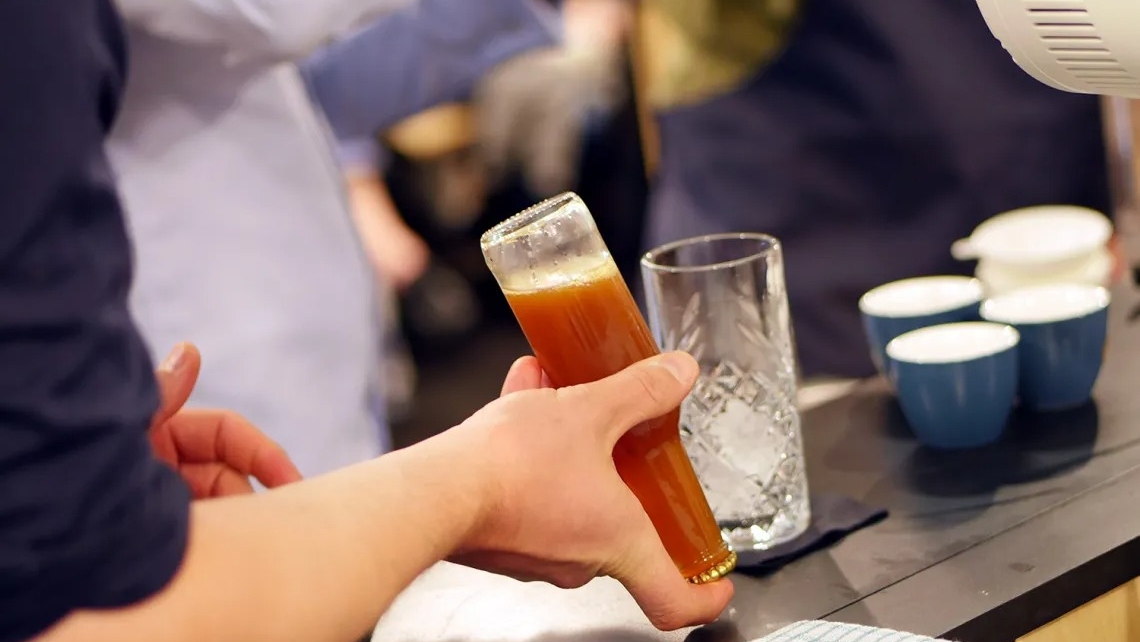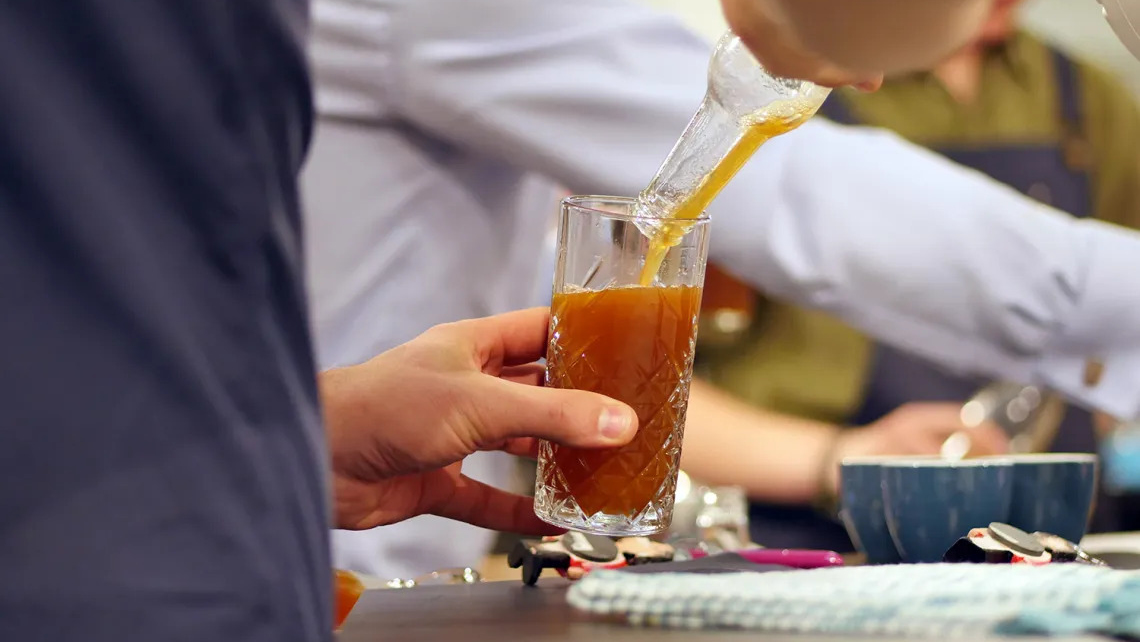SPRUDGE by JORDAN MICHELMAN 2 MAY EXCLUSIVES, STAFF PICKS
After four days of intense multi-skill barista action at the fourth annual London Coffee Masters during the London Coffee Festival, a new champion has been crowned: Agnieszka Rojewska, an independent competitor from Poznan, Poland.
From a field of 24 baristas—one not short on high profile competitors from across Europe and North America—Rojewska’s name quickly rose to the top of the list as the favorite to win it all, and for good reason; she is a three-time Polish Barista Champion, a four-time Polish Latte Art Champion, a two-time World Latte Art Championship finalist, a Polish Brewers Cup runner-up, and most recently a runner-up at the 2017 New York Coffee Masters. In short, she has amassed one of the most impressive and varied résumés in barista competition history.
Rojewska’s multi-faceted skillset suited her well in Coffee Masters, a competition testing a broad range of barista skills, ushering her into the top eight before she bested Romania’s Daniel Horbat in the semi-finals on the way to beating out Rob Clarijs of The Netherlands for the title (and another notch on an already well-notched belt) of 2018 London Coffee Masters Champion.
With the win, Rojewska earned a £5,000 cash prize, which she says she will use primarily to fund future barista competitions. To learn more about the big win, and what it means, Sprudge co-founder Jordan Michelman caught up with Agnieszka Rojewska.
This interview has been condensed and edited for clarity.
Hi Agnieszka! Congratulations on your big win! By way of introduction, what do you do professionally in the coffee industry in Poland?
For now I call myself an unemployed freelancer. There is no specific job I do. Most of the time I train baristas in barista skills, brewing, and latte art, and sometimes I do guest shifts at coffee shops. I also help people with opening or improving their businesses. I used to co-own a coffee shop, but because of number of travels I’ve had lately, I had to give that one up. But it is still in good hands.
You’ve won £5,000 for winning the Coffee Masters. How will you be spending your prize?
Well there is still a big kid inside me, so some part of it will definitely go to useless stuff, like new video games, funny socks, or sneakers. But definitely most of it will be an investment into my next competition later this year. Competing internationally is a big investment.
Talk us through your signature drink creation for the Coffee Masters. What did you do? Did this differ from years past?
I was looking for an idea that we are all familiar with and a beverage that wouldn’t be very complicated. It just struck me at some point that most coffee people like gin and tonics. Going from gin and tonic, we get tonic espresso, so we have a common ingredient.
My biggest problem with most gin and tonics and also tonic espressos is that there is too much bitterness and then this sugar-like sweetness in tonic. So I prepared my own tonic base, which still had those botanical notes, but I added more acidity and citrus flavours. It is basically made of orange, lemon, lime, grapefruit, and lemongrass with pepper, cardamon, anise, allspice berries, and quinine bark. From those ingredients I created a syrup, which I added to sparkling water in a 1:1 ratio.
Because it has a lot of citrus acidity I chose a different gin and infused it with Turkish quince juice to get an apple and pear sweetness. A gin and tonic made from those ingredients is more refreshing and has more acidity than regular ones.
For the coffee, I didn’t want to use espresso because it would be to intense for that drink. That’s why I used a natural-processed Ugandan coffee (Arabica). It has an extremely big body with flavors of prune, rum, and black cherry. It fit the rest perfectly.
This was a new approach for me. Most of the time I start with the coffee and then try to find matching spirits, but this time I wanted to take something from a bartender’s world and adjust the coffee world to it.
You placed second in the New York tournament last year, squaring off against Erika Vonie in the finals. Take us back to that moment: what did you learn from it? How did your Finals appearance help you win in London?
New York was a great experience, and I went there with no expectations. I was a bit surprised with my good performance through almost the whole tournament, but I think I lost focus in final moments. Erika was at her very best in the finals, when I was already going down. Looking back, it was a compilation of mistakes at every step. I didn’t handle the pressure. I learned there that you can only relax or let go a bit when you cross that finish line, not before. I learned that even if you are very good, it doesn’t mean that someone won’t be better, so you should prepare for every discipline; I’m talking here about losing latte art battle in NY 🙂
Editor’s note: Rojewska didn’t make the same mistake twice, winning every latte art battle she was a part of at London Coffee Masters.
In London I already knew how it goes, I knew more less what to expect and how demanding every day is, so I could just prepare myself a lot better.
Is this a major moment in your career thus far?
I think so. This is the first huge international competition I managed to win. I was always near the top, but never succeeded. I started to think that I might not be able to deliver that at some point, that maybe I will always be just inches from the top. It was the moment when I felt like all those years of trainings weren’t for nothing. Might be a breaking point in my career, who knows 🙂
What’s something about competing in Coffee Masters that new competitors might not know? What have you found surprising about the tournament?
A lot of competitors think that this will be similar to other competitions like, the Brewers Cup or Barista Competition. The big difference is that for Coffee Masters, you can’t actually prepare, you know nothing that will be happening there besides your signature beverage. We enter the competition with the same preparation: we don’t know the coffees, we have no idea how to brew them. So it all goes back to how you handle pressure and stress. Are your skills and knowledge good enough the handle the unknown? At first I was telling my friends that on the CM stage you have to be a little coffee McGuyver—in a new environment, you have to make coffees taste great while knowing almost nothing about them. It challenges your skill like no other.
You’ve been part of the tournament now for several seasons. Does it feel to you like Coffee Masters is growing?
Oh yes. Just look, for example, at the numbers of competitors. It’s 24 now. And not just the number of competitors is growing but the level as well. Look at the results in first round, we were all very close; baristas are getting better and better and there is no place for mistakes in the competition
What’s the one thing about Coffee Masters you’ve enjoyed the most?
It would be hard to choose one thing… I think that the interactions we have with judges, other competitor on stage, emcees, and the crowd: talking, asking questions, joking, etc. It just makes you want to never leave that stage.
Describe the moment of victory in your own words.
The feeling is hard to describe. Of course I was pretty nervous before. I have already been in that place and lost, so the pressure I put on myself was a bit bigger. But the moment they showed my name as a winner I was just extremely happy; all that stress was gone, my mind was calm. I think I was smiling for next three days.
Is there anyone special you’d like to thank?
Of course!!! Special thanks to my teammate Paula. She is always there for me, drinking all those good and bad versions of my beverages, taking care of the cuppings. She is able to handle my whining, anger, depression. She is my team, none of this would happen without her help!
Thanks Agnieszka, and congratulations again on the big win!
